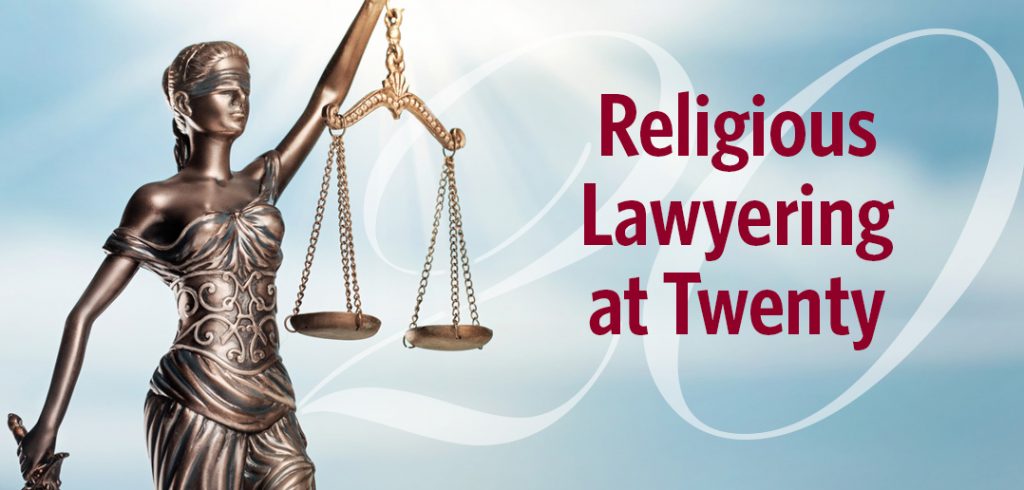Twenty years ago, Fordham’s School of Law convened “Rediscovering Religion in the Lives of Lawyers and Those They Represent,” a conference that brought together lawyers, judges, students, and scholars looking to help those in the legal field reconcile their deeply held religious beliefs with their professional lives.
Amy Uelmen, a lecturer at Georgetown University, was one of those in attendance. Uelmen, who would join Fordham Law School in 2001 as director of the Institute on Religion, Law and Lawyer’s Work, said she knew something big was afoot at the time.
“There was this sense of, how do we carry forward this thirst for integrity in our personal lives and our professional lives? I had the impression that there was a seed of something new,” she said.
“If you work for the poor or the homeless, it’s obvious in some ways how Catholic values dovetail with that, but if you’re working for large companies or in a large firm setting, it’s not so obvious. So, I think there was an opening to go to these areas that are less clear, and in some ways, a little bit more difficult to thread out the connections.”
A Reunion for Scholars
Uelmen will rejoin many of the attendees of that 1998 conference on Thursday, as the Institute marks the anniversary of it and a similar conference in 1997, at Religious Lawyering at Twenty, a two-day event sponsored by Fordham Law at the Lincoln Center campus. She will join the Honorable David Shaheed, retired Superior Court judge and associate professor at Indiana University’s School of Public and Environmental Affairs, for a panel, “Humanizing Legal Education.”
On Friday, Fordham Law professor Russell G. Pearce, will lead a panel discussion, “Religious Lawyering at Twenty: In conversation with the next generation.” Pearce, who is also the Edward and Marilyn Bellet Chair in Legal Ethics, Morality, and Religion, was instrumental in organizing the original conferences.
Uelmen said that while Pearce had taken Tom Shaffer’s 1981 treatise “On Being a Christian and a Lawyer” and applied it to the tenets of Jewish Law, one of the noteworthy developments to come out of the 1998 conference was the involvement of the National Association of Muslim Lawyers, which had formed just two years earlier. One of the founders, University of Wisconsin Law School professor Asifa Quraishi-Landes, will be on the panel with Pearce.
When it comes to the past, she said she was excited to honor Howard Lesnick, the Jefferson B. Fordham Professor of Law Emeritus at the University of Pennsylvania Law School. Lesnick, who retired last year, wrote core texts such as Religion in Legal Thought and Practice (Cambridge University Press, 2010) and The Moral Stake in Education, (BookSurge, 2009).
“We’re going to celebrate how Howard brought his insight into the implications for teaching pedagogical practice and helped students become more human, basically,” she said.
Looking Ahead to the Future
The conference will not only be a retrospective; Uelmen said she’s hopeful that the conferences’ panels, celebrations, and workshops will also highlight the work of scholars who are just getting started. Their input is particularly important, she said, because they’re working in an environment that is very different from 1998. In fact, Uelmen returned to Fordham in 2016 to co-teach a workshop on having difficult conversations.
“We’ve spent, in many ways, the last 20 years becoming increasingly politically polarized, which makes it difficult to meet each other, hear each other, and figure out how to exchange stories and ideas,” she said.
“It’s a wonderful thing to get together in person, and make some personal connections and figure out how we can bring ahead a really humanized approach to having difficult conversations where we might substantially disagree on important questions.”

